Like a number of the films chosen for the Black History Month Spike Lee Film Series at Winona State University, 4 Little Girls is likely to elicit emotion from the audience. This documentary is focused on the 16th St. Baptist Church Bombing in Birmingham, Alabama on September 15, 1963, honoring the memories of each of the victims while at the same time explaining the hardships each of their families endured before, during, and after the incident. Spike Lee’s emotional tribute to those “four little girls” is a reminder for all Americans to remember their history–and to use that knowledge to engage, heal, and improve.
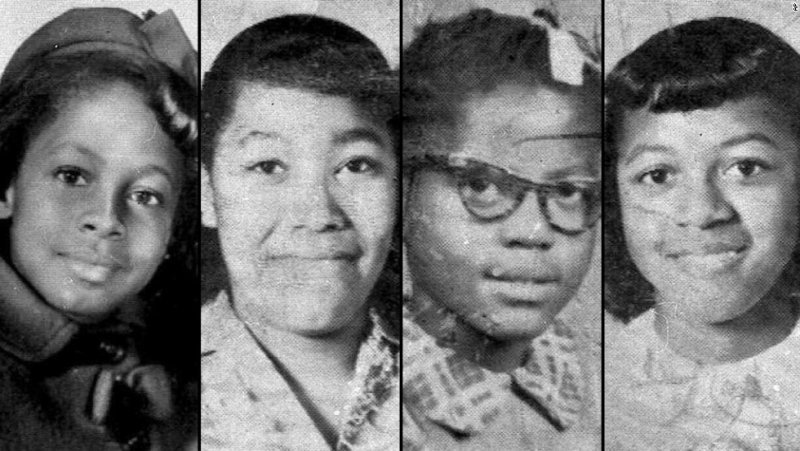
Denise McNair, 11; Cynthia Wesley, 14; Addie Mae Collins, 14; and Carole Robertson, 14, were killed in the Sixteenth Street Baptist Church bombing on September 15, 1963
Most people know Spike Lee as a director of fictional feature films that focus on political issues and racism in and around Brooklyn, New York. But Lee is also an actor, writer, producer, professor, and a documentarian as well. 4 Little Girls is one of his most acclaimed documentary films, receiving an Academy Award Nomination for Best Documentary Feature in 1997. Lee originally approached the victims’ families while a student at New York University, long before he had the resources or connections to produce the film. His deliberate topics have made him a very conscious documentary filmmaker, one who, as, Christine Acham writes, has “had to consider the impact on the lives of those he has chosen to represent” (167). He takes into consideration the ethical decisions that need to be made while filming a documentary and is still able to accomplish his goals.
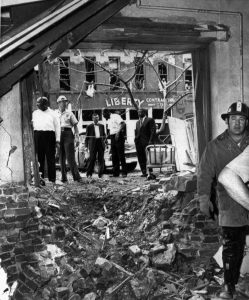
The scene of the 16th St. Baptist Church bombing.
Unlike the aggressive stance of Lee’s fictional films Do the Right Thing and BlacKKKlansman, 4 Little Girls takes a more analytical approach as to what life was like during the Civil Rights Movement. Lee states: “The best treatment of the story would be to let people who were there tell it. There is no way I can write dialogue that can describe the pain of a parent losing a daughter at a young age” (qtd. in Acham 166). This participatory film engages people who can speak from experience, thus giving the audience a way of connecting through its emotional impact.
4 Little Girls begins on a more informational note, including footage and images from the 1950s and ‘60s while victims of the incident speak about what it was like to live in Birmingham, Alabama. Many spoke about how it was difficult to explain to their children why segregation existed, and some of those children never made it to the age of realization about why things were the way they were, during this time. Town and state officials, included in this film, spoke about how the forces were, and how destructive some situations would turn into because of the interventions made by the forces. The actions of the citizens, policemen, firemen, and officials caused many peaceful marches to become more than just a parade.
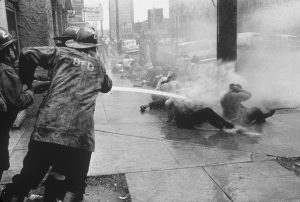
Protesters during the Civil Rights Movement and the forceful firefighters.
Following these brutal experiences, the 16th St. Bombing was a tragic act of racial terrorism. Friends and family spoke on behalf of their experiences and explained, with great emphasis, how hard it was to endure something so tragic. Junie Collins, the sister of one of the victims (Addie Mae), explained that the event unfolded in a place that felt safe, making it very unexpected for all. From the tragedies each victim endured, it is safe to say that they are resilient because of their continued opposition of segregation.
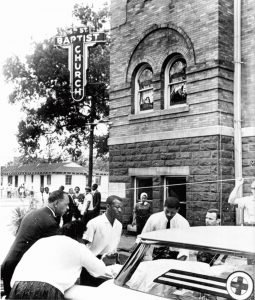
The 16th St. Baptist Church.
4 Little Girls is a film that demonstrates both resilience and resistance: in particular, there is the resilience of the families who must live on even after the deaths of their daughters. This film also shows viewers the resistance that people held up during the ’50s and ’60s; the marches, the sit-ins, and the boycotts each played a factor in working towards equal rights during the Civil Rights Movement. This movement showed that although many people suffered, African-Americans would not yield to inhumane segregation laws and norms.
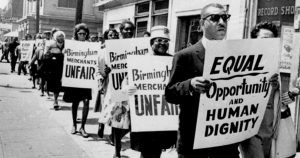
Protesters marching in Birmingham, Alabama.
This harrowing documentary about the Baptist Church Bombing is one that should be reassessed often. It educates its viewers about what life was like for a citizen in the 1950s and early ’60s and the tragedies many families endured because of the brutality during this era. Although we tend to think of the Civil Rights Movement as a part of our distant past, acts of terrorism still continue today. Since 2010, seven attacks have been made on African-American churches. The 2015 Charleston Church shooting–where nine African Americans were murdered by a 21-year-old white supremacist during a prayer service at the Emanuel African Methodist Episcopal Church–reminds us of just how timely and necessary Spike Lee’s filmmaking has been. In this interview from 1997, Lee speaks to his intentions not just in honoring the victims and their families, but reminding all viewers of the need to remember their history.
Spike Lee’s 4 Little Girls reminds viewers of how inhumane racism was and still is, while evoking emotions that not all Civil Rights documentaries are able to do. Other films display the riots and violence, but not all stories are able to conjure the emotions of 4 Little Girls. This film honors the victims of this tragedy, and with its themes of resilience and resistance, makes another one of Spike Lee’s films a great addition to the Black History Month Film Series.
Spike Lee’s 4 Little Girls is showing Monday, February 18, at 7 p.m. in Science Laboratory Center 120. Along with Lee’s film you’ll also be treated to a special showing of one of this year’s Academy-Award-nominated Best Documentary Short Features!
The event is free and open to the public. We hope to see you there–and at each of he following films in our series!


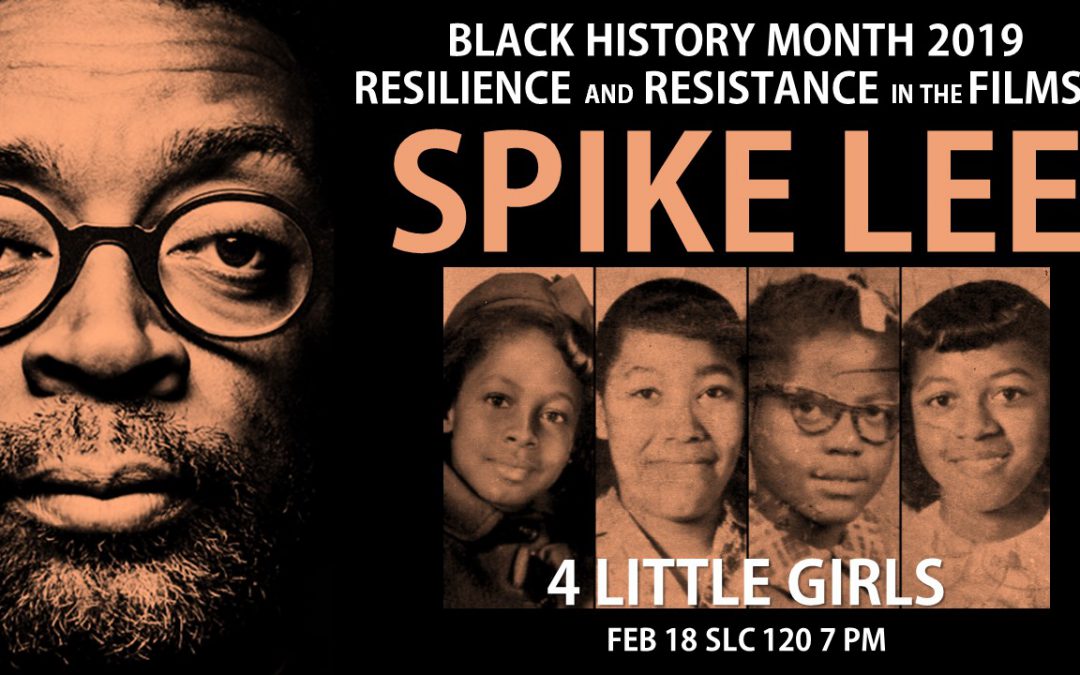
Recent Comments